What is Anti-Aging Medicine?
In the last 10 years you may have noticed more and more doctors discussing anti-aging medicine. I see anti-aging medicine as the future of how we approach patient care. But what is is really?
I like to describe anti-aging medicine as slowing down or reversing the symptoms of aging. For example, if aging is less energy, declining memory, loss of sex drive, erectile dysfunction, weaker muscles, increasing body fat, declining hormones, etc. then anti-aging medicine would mean to replenish hormones, improve memory, improve sex drive, reverse erectile dysfunction etc. The simplest example I can show you is the typical 42-year-old male that comes into my office complaining of fatigue, lack of interest in sex, and weak erections. When I check his testosterone level it is typically in the 300-500 range which is consistent with his age. However, when you give him testosterone and bring his levels into the optimal range (800-1200) within weeks he will have stronger erections, improved sex drive. and more energy. In this case we have slowed down and/or reversed his symptoms of aging. This patient is still going to grow old and die but during the course of life we changed the aging process. Make sense?
What is the number one thing doctors can do to improve symptoms of aging?
Without question, optimizing a patients hormone levels is the #1 thing we do to improve the symptoms associated with aging. All the beneficial hormones (testosterone, human growth hormone, progesterone, estradiol, DHEA, thyroid) will decline steadily as we age. The speed at which we see decline in hormone levels is different for everyone. I see some women who enter menopause at 30 and some men with testosterone levels of 250 at age 24. What we do know is that for all of us our endocrine organs will ultimately fail and our hormone levels will be very low towards the end of our life. However, medical research has demonstrated that if we replenish hormones early in life (30’s and 40’s) and keep them in the optimal range that we can reduce the symptoms associated with aging. The most commonly prescribed hormones for men are DHEA, testosterone, thyroid and sermorelin. In women we prescribe testosterone, sermorelin, testosterone, estradiol and progesterone.
The American Academy of Anti-Aging Medicine trains thousands of physicians in the field of anti-aging medicine and is a great resource.
Does diet affect aging?
The largest contributor to the aging process is sugar due to its effect on driving up inflammation in the body. If you want to age fast, simply start pounding sugar. I often will say to patients who come to my office and admit to eating a lot of sugar; “cut out all sugar for 90 days and then we will treat whatever symptoms are left.” Sugar drives up insulin which causes our cells to produce chemicals that make blood sticky and sluggish and cause inflammation. Inflammation is what drives plaque build up in the arteries and we know that heart disease kills more people than all the cancers combined. If you want to slow down the inflammatory process, the first thing you need to do is eliminate or severely reduce sugar.
What about additional anti-aging treatments?
I consider anything that slows or reverses the symptoms of aging to be anti-aging. For example, BOTOX injections reverse (albeit temporarily) the aging process by temporarily paralyzing the muscles in skin that has lost its elasticity. I consider plastic surgeons to be in the anti-aging business as well. I have a dear friend and colleague who was recently trained in stem cell injections to reduce joint pain and he is seeing positive results. The medical field is becoming filled with experts who are focusing on nothing but how to slow or reverse the symptoms of aging, or what we call anti-aging medicine.
The reality is that every single person reading this is going to age and die (sorry!). However the rate at which that (symptoms of aging) happens can be slowed significantly through optimizing hormones (like testosterone, human growth hormone, estradiol and progesterone), nutrition, and additional treatment modalities.
If you would like to schedule a consult with Dr. Sean Breen simply give us a call at 877-721-0047 and visit us online at www.breencenter.com.

